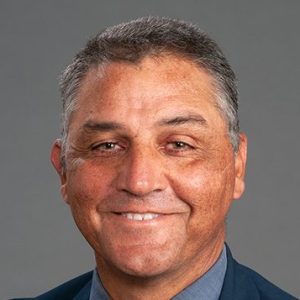November 20, 2023
 As an enrolled member of the Lumbee tribe of Eastern North Carolina, Ronny Bell, Ph.D., M.S., believes American Indian Heritage Month is an opportunity to celebrate.
As an enrolled member of the Lumbee tribe of Eastern North Carolina, Ronny Bell, Ph.D., M.S., believes American Indian Heritage Month is an opportunity to celebrate.
“This month is a recognition and reminder of the popular phrase ‘we are still here’,” said Bell, Fred Eshelman Distinguished Professor and chair of the Division of Pharmaceutical Outcomes and Policy and senior advisor at UNC Lineberger Comprehensive Cancer Center.
“We often think of American Indians as being that invisible population because, relatively speaking, we only represent about 2-3% of the North Carolina population. We aren’t a large group of people, but there’s such a strong history and it’s a great opportunity to celebrate that heritage.”
Having grown up in Robeson County, home to the Lumbee tribe and the worst health outcomes of all 100 counties in the state, Bell has continued to serve and be inspired by his community throughout his career. With a public health and nutrition background, his research focuses on health disparities with an emphasis on rural and underserved populations, such as American Indians.
“Unfortunately, what we see in tribes across the state and country are the health challenges they face—from chronic diseases, diabetes, cancer and heart disease to substance misuse and homicides,” he said. “For me, there’s a passion to understand those issues and to help find solutions that are community driven and community embraced.”
Bell grew up in a community that invested in him and pushed him to pursue a professional career—it not only inspired him, but also his two older brothers, both Tar Heels, who work as a pediatrician, the first in Pembroke, North Carolina, and a judge. Bell found his passion for research through public health and the doors it opened for collaboration among health care professionals, academics and policymakers.
In 2021, he helped launch and now co-leads the Southeastern American Indian Cancer Health Equity Partnership (SAICEP). SAICEP is a partnership between the community outreach and engagement programs at the National Cancer Institute-designated Comprehensive Cancer Centers at Carolina, Duke and Atrium Health Wake Forest Baptist, designed to engage North Carolina tribal communities in cancer research, outreach and education.
Bell believes in the impact his work is having on tribes and rural communities in North Carolina—home of the largest population of American Indians on the eastern seaboard.
Latest News

Dean Angela Kashuba receives Carolina Alumni Faculty Service Award

RASP poster presentations capture student research


